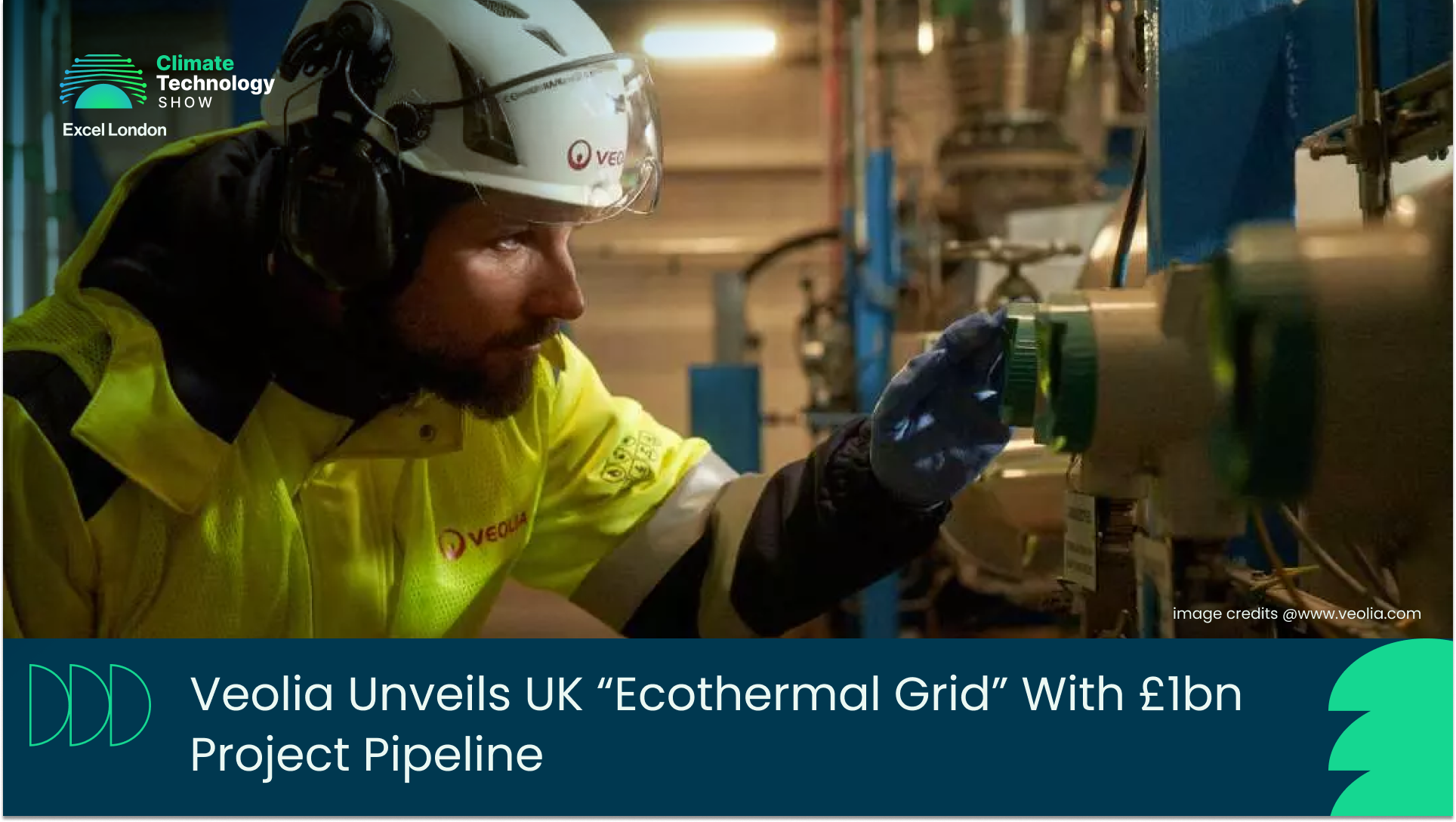UK, 26th November 2025: Veolia has unveiled a £1bn pipeline of UK district heating projects scheduled for award by 2030, forming part of its new “Ecothermal Grid” offering aimed at expanding low-carbon heating and cooling solutions nationwide. The initiative aligns with the company’s ambition to strengthen its UK presence by using a mix of energy sources to deliver carbon-neutral heat.
Heating in buildings currently accounts for 37% of the UK’s CO₂ emissions, underscoring the need for cleaner alternatives. Despite this, district heating supplies only around 3% of UK heat demand today, far below the Government’s target for 20% by 2050. Achieving that goal could unlock up to 15 million tonnes of carbon savings and contribute to a potential £80bn market.
To meet rising demand, Veolia is advancing a £1bn project pipeline across regions, including Wiltshire, London, Bristol, Yorkshire and Cambridgeshire, which already includes £210m in confirmed 2025 project wins.
Recent milestones include completing Phase One of the “Southwark 2.0” District Heat Network, an expansion supporting more than 2,500 homes and saving about 8,000 tonnes of CO₂ annually. When fully finished, the network will serve nearly 7,000 homes with excess heat from Southwark’s energy-from-waste plant, delivering an additional 14,000 tonnes of annual CO₂ savings. Phase Two begins in March 2026, subject to approvals.
The company is now urging the UK Government to introduce supportive policies, including using the UK Emissions Trading Scheme to incentivise heat supply from Energy-from-Waste facilities, creating long-term funding beyond the Green Heat Network Fund, and mandating the utilisation of waste heat by connecting buildings to local networks.
In an official press release by Veolia Estelle Brachlianoff, Chief Executive Officer, of Veolia, said, “Veolia’s ambition is to be at the forefront of a new wave of heating networks across Europe, and ultimately to become the number one player in urban heating in Europe. In so doing, we will deliver a direct route to carbon-neutral heating and cooling, using a diverse range of energy sources and integrating AI-driven smart controls and energy storage technologies to create the most reliable and flexible networks. In order for this to happen, we need - across Europe and in the UK - funding mechanisms that provide certainty, and stable regulatory frameworks.”
In the same press release, Gavin Graveson, Senior Executive Vice President, Northern Europe Zone, Veolia, said, “Veolia is investing heavily in new and existing heating networks. To encourage further investment in decarbonised heat in line with its 2050 targets, the government could use the UK Emissions Trading System (ETS) to incentivise electricity producers to supply local heating networks. Once the infrastructure is in place, the networks must also be fully utilised to optimise their profitability and carbon efficiency. Mandatory connections would guarantee operators a stable demand.”
Veolia’s £1bn district heating pipeline signals a decisive step toward scaling low-carbon heat infrastructure across the UK. With strong policy support and regulatory clarity, the company believes the UK can unlock significant carbon savings, boost energy efficiency, and accelerate the transition to a cleaner, more resilient heating future.

